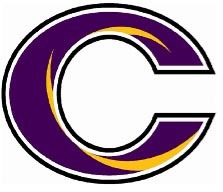Caro Community Schools
No-Tax-Rate Increase Bond Proposal
Election Day is Tuesday, August 6, 2024. Polls will be open from 7 a.m. until 8 p.m. Absentee ballots will be available after June 27th. To obtain an absentee ballot application, call your local clerk.
What is on the ballot?
A no-tax rate increase bond proposal is on the ballot. The $18.4 million bond proposal is a scaled-back version of the May 7, 2024, proposal that was defeated by voters.
The bond proposal focuses on three main areas:
- enhancing safety and security
- improving educational spaces; and,
- improving operating efficiencies.
How does the August 6th proposal differ from the last bond proposal?
The revised bond proposal has been reduced in terms of cost and scope of projects. The bus garage will not be constructed or relocated, and only the highest-priority updates will be made at all school facilities.
What projects will be completed through the bond proposal?




Voting Information
Who can vote in this election?
Residents of Caro Community Schools who will be 18 years of age or older on Election Day and are registered to vote can vote in this election.
Where can I get information about voting (such as how to register, where to vote, and absentee voting)?
Go to the Michigan Voter Information website or call your local clerk’s office.
Do I need to update my voter registration?
You need to update your voter registration if you have changed your name or address since the last time you voted. You can do this at any Secretary of State Office or your local clerk’s office.
Can I vote by absentee ballot?
Yes. Registered voters do not need a reason to vote by absentee ballot. You can request an absentee ballot application from your clerk’s office or by going online to the Michigan Voter Information website and clicking on Vote at home in the left column. First-time absentee voters must complete an application and return it to your local clerk's office. The entire process may require 2 weeks or more by mail.
Absentee ballots will be available to voters June 27th and can be cast through Election Day.
August 6th Ballot Language
Here is the exact ballot wording for the Bond Proposal:
Caro Community Schools Bond Proposal
Shall Caro Community Schools, Tuscola County, Michigan, borrow the sum of not to exceedEighteen Million Four Hundred Thousand Dollars ($18,400,000) and issue its general obligation unlimited tax bonds therefor, in one or more series, for the purpose of:
- remodeling, furnishing and refurnishing, and equipping and re-equipping school buildings and facilities, including for school security;
- erecting, furnishing, and equipping additions to school buildings;
- acquiring and installing instructional technology; and
- equipping, preparing, developing, and improving athletic facilities, playgrounds, and sites?
The following is for informational purposes only:
The estimated millage that will be levied for the proposed bonds in 2024, under current law, is 1.70 mills ($1.70 on each $1,000 of taxable valuation) for a -0- mill net increase over the prior year’s levy. The maximum number of years the bonds may be outstanding, exclusive of any refunding, is sixteen (16) years. The estimated simple average annual millage anticipated to be required to retire this bond debt is 3.72 mills ($3.72 on each $1,000 of taxable valuation). (Pursuant to State law, expenditure of bond proceeds must be auditedand the proceeds cannot be used for repair or maintenance costs, teacher, administrator or employee salaries, or other operating expenses.)

If you have additional questions about the ballot proposal, email:
 Background Information & FAQs
Background Information & FAQs
What is a bond?
A bond is a state-approved funding process for an identified list of projects. When voters approve a bond proposal, the school district sells bonds in the authorized amount and uses the bond sale proceeds to pay for the bond proposal projects. Bonds are typically paid back in 20-30 years.
In many ways, the bonding process is like a homeowner refinancing their home and making payments over a period of years. The Caro Community Schools August 6th bond proposal length is 16 years.
How does the August 6th proposal differ from the last bond proposal?
The revised bond proposal has been reduced in terms of cost and scope of projects. The bus garage will not be constructed or relocated, and only the highest-priority updates will be made at all school facilities.
The bond proposal focuses on three main areas:![]()
- Enhancing safety and security
- Updating the learning environment
- Updating the infrastructure
How can a bond proposal not increase the current tax rate?
When school district voters approve a bond proposal, the school district borrows money (through the sale of bonds) and repays the borrowed money over a predetermined number of years. As bond payments are made, the amount owing is reduced, allowing school districts to refinance and extend the indebtedness to cover the cost of other building improvements.
Why wasn’t a no-tax rate increase bond proposal brought to the community for the last bond?
The May 7th bond was more comprehensive and designed to address short—and long-term facility needs. It was designed to address building needs for the next 15 or more years. It was also designed to create a single campus and improve operational efficiencies.
To complete the scope of work included in the May 7th bond, the cost exceeded the revenue that would have been generated by extending the current tax rate for a no-tax rate increase bond proposal.
How were the bond proposal projects identified?
The bond proposal projects were scaled back following the defeat of the May 7th bond proposal. The bond projects from theMay 7th proposal were divided into priority areas.
- Priority One areas included projects that are immediate needs that could be funded through a bond without increasing the current tax rate.
- Priority Two projects were identified as projects that could be delayed for a future bond proposal.
The August 6th proposal only addresses Priority One projects.
What will the bond proposal cost the average homeowner?
![]() The bond proposal will not require an increase to the current tax rate. The current tax rate will be extended for the life of the bond.
The bond proposal will not require an increase to the current tax rate. The current tax rate will be extended for the life of the bond.
What will happen if voters do not approve the bond proposal?
If voters don‘t approve the August 6th bond proposal and the same proposal is placed on the November ballot, that proposal will require a 1.7 mill increase for residents. The school district is at a critical funding point. After August 6th, as more debt is paid off, any new facility improvements will be funded by a bond that will require a tax increase.
Can any of the bond proposal funds be used for employee salaries or operating expenses?
No. Bond proposal funds cannot be used for employee salaries. They also cannot be used for repair or maintenance costs or other operating expenses. Bond proposal funds must be used only for purposes specified in the ballot language and, as required by Michigan law, they must be independently audited.
What can bond proposal revenue be used for?
Bonds can be used for:
- Constructing additions to existing school buildings
- Remodeling existing school buildings
- Energy conservation improvements

- Site development and improvements
- Athletic and physical education facility development and improvements
- Playground development and improvements
- School bus purchases
- Purchasing loose furnishings and equipment (including administrative technology)
- Direct bond program costs, such as professional fees, election fees, issuance costs, qualification fees, insurance fees, and final audit costs
- Technology purchases are limited to hardware and communication devices that transmit, receive, or compute information for pupil instructional purposes only.
- The initial purchase of an operating system and customized application software is allowed if purchased with the initial hardware.
Bonds cannot be used for:
- Salaries, service contracts, lease payments, installment contracts, and supplies
- Repairs, maintenance, or maintenance agreements

- Purchasing automobiles, trucks, or vans
- Portable classrooms purchased for temporary use
- Uniforms
- Textbooks
- Upgrades to an existing computer operating system or application software
- Computer training, computer consulting, or computer maintenance contracts
A YES vote typically means that a voter supports a ballot proposal. Is that the case in this election?
![]() Yes. Voters who support the Caro Community Schools bond proposal should vote yes; voters who oppose the proposals should vote no.
Yes. Voters who support the Caro Community Schools bond proposal should vote yes; voters who oppose the proposals should vote no.
August 6 Bond Information
